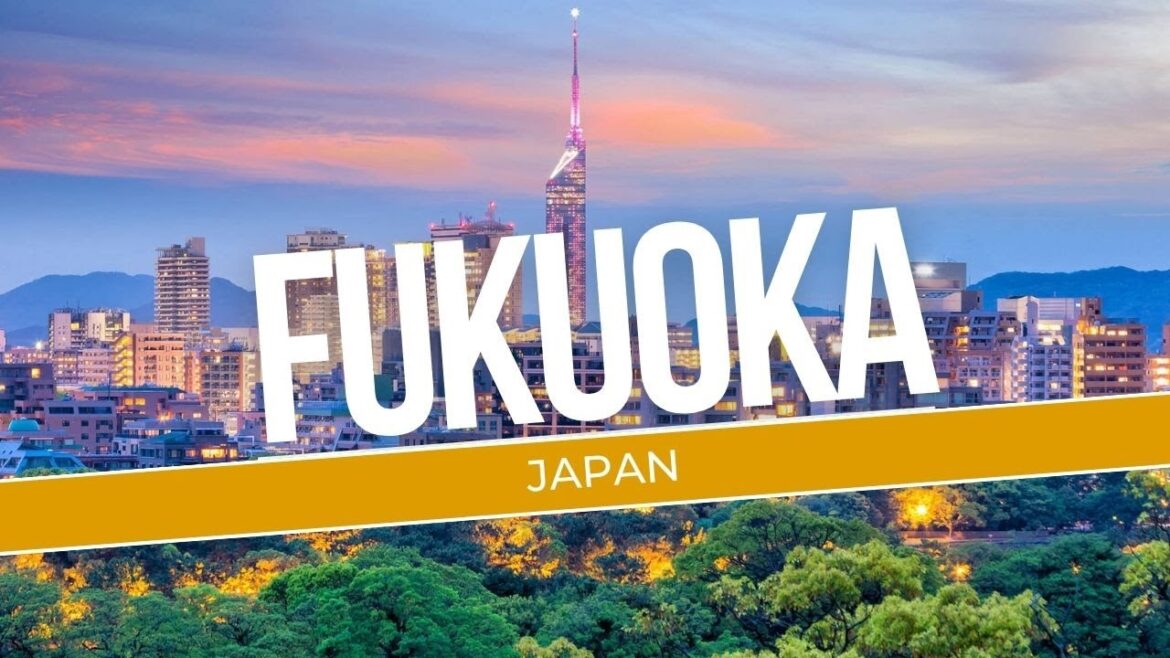Fukuoka City – Japan #travel #geography #Japan #japantourism #amazingfacts
Fukuoka, a dynamic metropolis on the northern shore of Japan’s Kyushu Island, offers a compelling blend of modernity, tradition, and natural beauty. As the largest city in Kyushu and one of Japan’s fastest-growing urban centers, Fukuoka boasts a rich history, vibrant culture, and thriving economy, making it a magnet for tourists, students, and professionals alike.
At the heart of Fukuoka lies its historic core, where ancient temples, shrines, and traditional markets coexist with sleek skyscrapers and bustling shopping districts. The city’s most iconic landmark is the Fukuoka Castle Ruins, which overlook the Naka River and offer panoramic views of the surrounding cityscape. Nearby, the Hakata Machiya Folk Museum provides a glimpse into the daily life and traditions of Fukuoka’s past inhabitants.
Fukuoka’s culinary scene is equally renowned, with a diverse array of dining options that reflect its status as a cultural crossroads. The city’s signature dish is Hakata ramen, a hearty noodle soup topped with tender slices of pork and served in a rich, savory broth. Visitors can sample this local specialty at one of the countless ramen shops in the Hakata district, where the aroma of simmering broth and the sound of slurping noodles create an unforgettable dining experience.
In addition to its culinary delights, Fukuoka is a haven for shoppers, with bustling retail districts and vibrant street markets offering everything from high-end fashion to quirky souvenirs. The Tenjin area is a shopper’s paradise, with department stores, boutiques, and specialty shops lining its streets and alleys. For a taste of traditional Japanese craftsmanship, visitors can explore the Kawabata Shopping Arcade, where artisans sell handmade pottery, textiles, and other artisanal goods.
Beyond its urban attractions, Fukuoka boasts a wealth of natural beauty and outdoor recreational opportunities. The city is surrounded by picturesque mountains, pristine beaches, and verdant forests, making it an ideal destination for nature lovers and outdoor enthusiasts. Nokonoshima Island, just a short ferry ride from the city center, offers scenic hiking trails, flower gardens, and panoramic views of the coastline.
Fukuoka’s cultural calendar is filled with festivals and events that celebrate its rich heritage and vibrant community spirit. The Hakata Gion Yamakasa, held in July, is one of Japan’s most famous festivals, featuring elaborate floats, traditional performances, and lively street parades. In autumn, the Hakata Dontaku Festival brings together dancers, musicians, and performers from across Kyushu for a colorful celebration of music, dance, and culture.
In conclusion, Fukuoka is a city of contrasts and contradictions, where ancient traditions blend seamlessly with modern innovations, and urban excitement coexists with natural tranquility. Whether exploring its historic landmarks, savoring its culinary delights, or immersing oneself in its vibrant cultural scene, visitors to Fukuoka are sure to be captivated by its charm, energy, and unmistakable sense of place.

